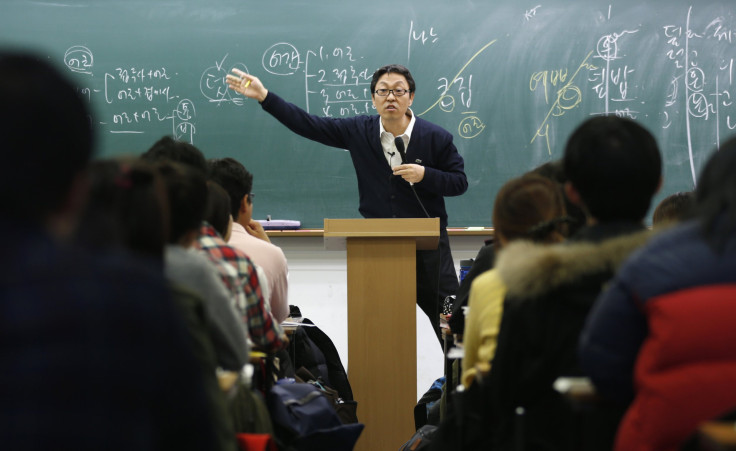Asian Countries Beat Western Nations In 2014 Global Education Index With South Korea On Top

Many Asian countries fare better than their Western counterparts in imparting education to their citizens, thanks to clear targets set for the educational system and a strong culture of accountability among all stakeholders, including parents and students, according to a new report.
South Korea topped the rankings in the latest edition of the Global Index of Cognitive Skills and Educational Attainment, published in the Learning Curve 2014 report from the Economist Intelligence Unit. South Korea was followed by Japan, Singapore and Hong Kong in the report, which compared trends in 39 countries. Other countries that made it to the top 10 include the UK, Canada, Netherlands, Ireland and Poland, while the U.S comes in at number 14, followed by Australia and New Zealand.
“The clarity of goalposts and alignment of the instructional system with them is more important than high-stakes testing, and something we can learn from Asian systems,” Andreas Schleicher, deputy director for education at the Organisation for Economic Co-operation and Development, said in the report.
Finland, which was the leader in the 2012 edition of the index, fell to fifth position due to its performance in reading, math and science literacy tests, while Sweden slipped from 21st to 24th position, “fuelling the debate over the country’s free schools policy,” according to the study.
The index based its rankings by testing reading literacy, learning trends in math and science, as well as cognitive skills across the population, including the assessment of international students within the system.
“Some conclusions from The Learning Curve can clearly be reached,” Michael Barber, chief education adviser for Pearson, which published the study, said in the report. "One is the continuing rise of a number of Pacific Asian countries, such as Singapore and Hong Kong, which combine effective education systems with a culture that prizes effort above inherited ‘smartness’. Another is the significant challenge of improving skills and knowledge in adulthood, for people who were let down by their school system.”
The report also recommended that developing countries improve their educational systems by focusing on creating an army of effective teachers and giving them the freedom and autonomy to perform, while exploring new ways to engage in educating the adult population.
“Adults whose subsequent employment or training opportunities don't make full use of their skills lose them more quickly than those who use them to their full extent in the course of their work” South China Morning Post quoted Barber as saying. “Therefore, it is vital that governments put the structures in place to slow the decline of skills in adults, irrespective of the position they hold on the index - skills need to be used continuously if they are to be retained.”
© Copyright IBTimes 2024. All rights reserved.






















